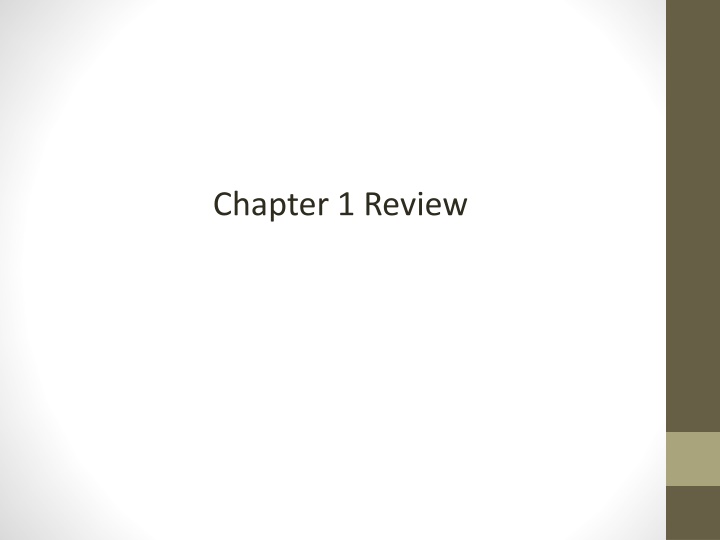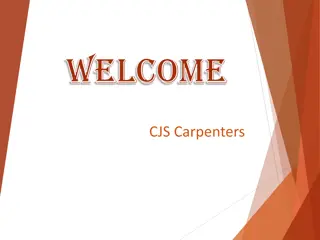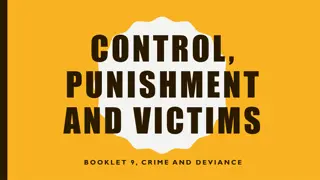
Morals, Ethics, and Values in Everyday Life
Explore the concepts of morals, ethics, duties, values, and making moral judgments in various aspects of life. From distinguishing between right and wrong to prioritizing values like achievement, love, and honesty, delve into the complexities of ethical decision-making. Learn how acts with free will affecting others play a crucial role in moral assessments.
Download Presentation

Please find below an Image/Link to download the presentation.
The content on the website is provided AS IS for your information and personal use only. It may not be sold, licensed, or shared on other websites without obtaining consent from the author. If you encounter any issues during the download, it is possible that the publisher has removed the file from their server.
You are allowed to download the files provided on this website for personal or commercial use, subject to the condition that they are used lawfully. All files are the property of their respective owners.
The content on the website is provided AS IS for your information and personal use only. It may not be sold, licensed, or shared on other websites without obtaining consent from the author.
E N D
Presentation Transcript
Morals and Ethics Right and wrong Good and evil Morals: Conduct as an individual in other spheres of life Ethics: Conduct in your profession
Duties Duties: Actions that an individual must perform to be considered moral. Ex: To obey the law
Duties Supererogatories: Actions that are commendable but are not required in order to be considered moral. Example: Good Samaritan saving a drowning child
Duties Imperfect duties: General duties one should uphold but no specific application as to when or how. Example: Generosity
Values Elements of desirability, worth, or importance.
Values Values become clear when there is a choice to be made.
Values Exercise Arrange these values in order of priority in your life Achievement Emotional well-being Knowledge Physical appearance Religious faith Family Justice Recognition Pleasure Skill Health Love Power Wealth Honesty Loyalty
Making Moral Judgments We make moral or ethical judgments all the time. We make choices knowing we can be judged as right or wrong.
Making Moral Judgments Acts that can be judged as ethical or unethical, moral or immoral involve 4 elements: (1) Acts that are (2) human and (3) of free will (4) that affect others
Making Moral Judgments 1. Act: Some act must have been performed.
Making Moral Judgments 1. Act: Some act must have been performed. Not necessarily concerned about how people feel or what they think about the particular action.
Making Moral Judgments 2. Only human acts: Judgments are directed specifically to human behavior.
Making Moral Judgments 2. Only human acts: Judgments are directed specifically to human behavior. No judgments to animals or natural disasters such as drought, famine or floods.
Making Moral Judgments 3. Free will: A person cannot be assigned moral culpability (responsibility) if they are not aware of the world around them to be able to decide rationally what is good or bad.
Making Moral Judgments 3. Free will: A person cannot be assigned moral culpability (responsibility) if they are not aware of the world around them to be able to decide rationally what is good or bad. Young and insane are exempt from responsibility.
Making Moral Judgments 4. Affects others: Only discuss moral or immoral behavior in cases where the behavior significantly affects others.
Making Moral Judgments 4. Affects others: Only discuss moral or immoral behavior in cases where the behavior significantly affects others. Self-destructive behavior harms those who love us and who would be hurt by such actions.
Review of Ch. 1 Issue: Dilemma:
Review of Ch. 1 Issue: Broad social questions, often concerning the government s control mechanisms and the impact on people governed. Dilemma: Situations in which 1 person must make a decision about what to do.
Review of Ch. 1 What did we learn about discretion and authority?
Determining Moral Behavior Chapter 2
What shapes your view of right & wrong? Parents Significant other Social Circle Religion Society
Ethical System A structured set of principles that defines what is moral: Characteristics: 1. Source of moral beliefs 2. Underlying premises from which you make judgments 3. They are beyond argument
Characteristics of Ethical Systems (Baelz) 1. Prescriptive: Certain behavior is demanded b/c it has a substantial impact on what we do. 2. Authoritative: Not subject to debate. 3. Logically Impartial or Universal: Same rules apply in all cases for everyone. 4. Not self-serving: What is good for everyone, not just the individual.
Ethical System Pyramid Moral Judgments Moral Rules Ethical System
What are our Ethical Systems? Virtual Theory Natural Law Religion Social Contract Egoism Ethical Formalism Utilitarianism Neo-Virtue Theory Ethics of Care
Natural Law Morality comes from nature and everything in nature has a purpose Universal set of rights and wrongs What is natural is good
Natural Law Criticism: Who determines the natural laws? These laws sometimes restrict rights of certain groups.
Religion Based on religious beliefs of good and evil God s will is beyond question
Ethical Formalism The only thing truly good is good will. Focus is on duty and logic
Ethical Formalism Absolutist system: If something is wrong, it is wrong all the time. Ex: Murder
Ethical Formalism Deontological ethical system: Emphasizes the intent of the actor as the element of morality.
Ethical Formalism If an act has bad consequences, it is still considered good if the intention was good. However, act is not good just because it results in good consequences. It has to be from good will. My intentions were good I meant no harm
Utilitarianism The greatest good is that which results in the greatest happiness for the greatest number.
Utilitarianism The greatest good is that which results in the greatest happiness for the greatest number. Ex: lifeboat
Human nature = maximize pleasure and avoid pain
Utilitarianism Teleological ethical system: Concerned with the consequences of an action to determine goodness. A bad act with good consequences can be defined as good.
The Ethics of Care Good = meeting the needs of others and preserving and enriching relationships.
The Ethics of Care Based on human relationships and needs Natural human impulses of compassion
The Ethics of Care Based on human relationships and needs Natural human impulses of compassion Ex: Lifeboat
Egoism The pursuit of self-interest = moral good. Do what benefits you No recognition of rights of others
Egoism Should egoism be considered an ethical system?
Egoism https://www.youtube.com/watch?v=a9J8GaeDqVc
Egoism Psychological v. Enlightened egoism: Psychological: Humans naturally seek self-interest. Ex: Rush of feeling like a hero Enlightened: It is in your long-term interest to help others in order to receive help in return. I scratch your back, you scratch mine
Question Is it selfish to give to charity?
Decision-making methods Imperative principle: All decisions should be made according to absolute rules Utilitarian principle: Decisions should be made according to what is best for the greatest number Generalization principle: Decisions should be made assuming that the decision would be applies to everyone in similar circumstances
Approach from Close & Merier 1. Does the action violate another person s constitutional rights, including their right to due process 2. Does the action involve treating another person only as a means to an end? 3. Is the action illegal? 4. Do you predict that your action will produce more bad than good for all persons affected? 5. Does the action violate department procedure or professional duty?



